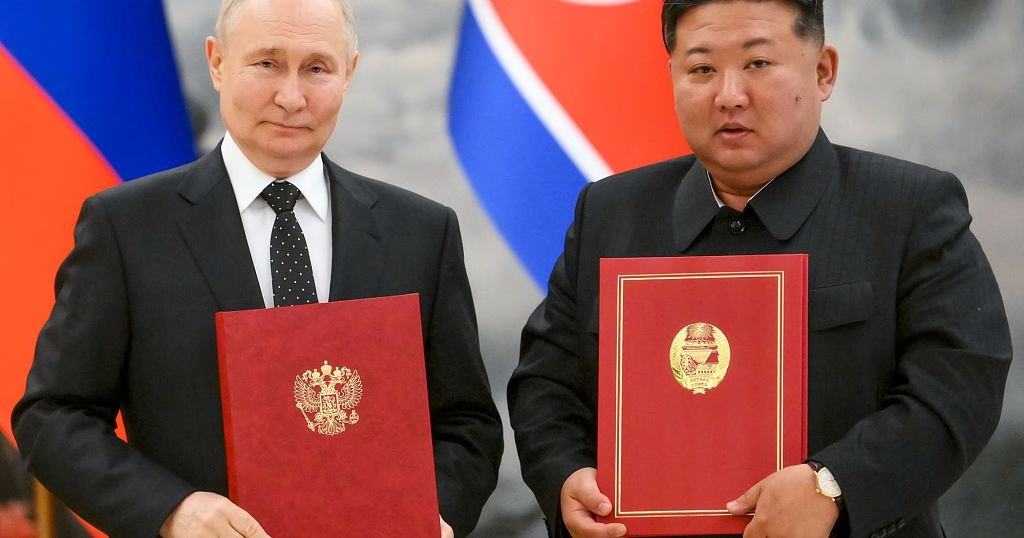In a significant development, Russian President Vladimir Putin has expressed his gratitude to North Korean troops for their role in fighting against Ukrainian forces in the Kursk region. This acknowledgment comes after Pyongyang officially confirmed its involvement in the conflict on Monday. Putin praised the “heroism, excellent training, and dedication” of North Korean soldiers, who fought alongside Russian troops, defending the region as their own.
The announcement from North Korea was made just two days after Russia claimed to have fully reclaimed the Kursk region, which is located at the border with Ukraine. However, Ukrainian officials have disputed this claim, stating that Russia has not fully recaptured the region. Ukraine had initially seized territory in the Kursk area after a surprise incursion in August 2024. In response, Pyongyang stated that the “operation to liberate Kursk by repelling the adventurous invasion of Russia by Ukraine was successfully concluded.” The North Korean statement also echoed Russia’s narrative that Ukraine is comprised of “neo-Nazi occupiers,” which has been widely disputed.
According to intelligence reports from the US, South Korea, and Ukraine, North Korea dispatched between 10,000 and 12,000 soldiers to Ukraine last autumn. This deployment marks North Korea’s first participation in a major armed conflict since the end of the Korean War in 1953. The decision to send troops to Russia was made under a mutual defense treaty signed between North Korean leader Kim Jong Un and President Putin in June 2024. The treaty requires both nations to provide immediate military assistance if either is attacked.
While North Korea has not disclosed the exact number of soldiers it sent to Russia or the number of casualties, South Korea’s military has assessed that around 4,000 North Korean soldiers were killed or wounded in the conflict. The involvement of North Korean troops in the war has significant implications, highlighting the deepening alliance between Russia and North Korea. As the situation continues to unfold, international attention remains focused on the region, with many watching to see how this development will impact the ongoing conflict.
